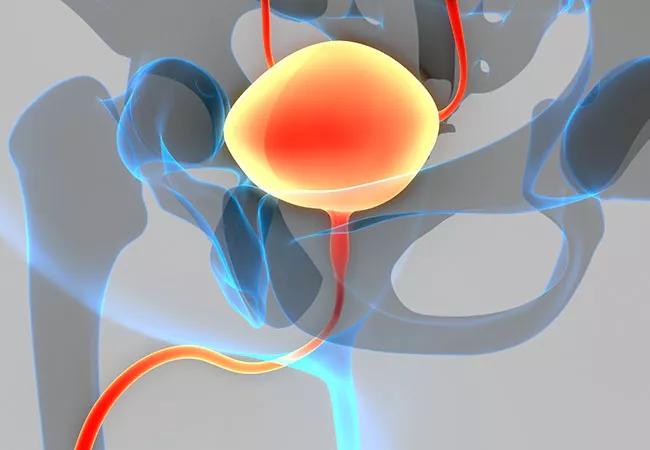Physician interviews reveal increasing use of systemic therapy for Ia/mUC

The armamentarium for locally advanced or metastatic urothelial carcinoma (la/mUC) has expanded in the past 5 years with the advent of immunotherapy agents and, more recently, with approval of first-line switch maintenance immunotherapy after platinum-based chemotherapy. Yet according to some reports in the literature, as many as 60% of patients may not be receiving the newer therapeutic options.
Advertisement
Cleveland Clinic is a non-profit academic medical center. Advertising on our site helps support our mission. We do not endorse non-Cleveland Clinic products or services. Policy
To assess current real-world treatment trends in la/mUC, Cleveland Clinic researchers studied the treatment decisions and prescribing patterns of a group of U.S physicians. The findings, which were presented at the American Society of Clinical Oncology’s Genitourinary Cancers Symposium, show that the proportion of patients with la/mUC treated with systemic therapy has increased — in both first- and second-line settings.
“We wanted to determine real-world practice patterns and whether physicians were aware of the recent approval of maintenance immunotherapy after chemotherapy for la/mUC and identify any barriers to its adoption,” says Shilpa Gupta, MD, Director of Genitourinary Medical Oncology at Taussig Cancer Institute and co-leader of the Genitourinary Oncology Program at Cleveland Clinic Cancer Center. “We found that 75% or more of eligible patients were being offered systemic therapy, which is reassuring.”
For the U.S. physician PARADIGM study, the authors first established a historical baseline on systemic therapy for la/mUC. Seven US retrospective studies were identified, which showed that the proportion of patients receiving first-line systemic therapy ranged from 40% to 65%; for second-line therapy, it was 15% to 40%.
The results of this targeted literature search were used to inform 60-minute qualitative interviews with eight community oncologists, four academic oncologists, and three urologists in the United States. All the participants had been practicing for at least 1 year after fellowship and were board-certified in oncology/urology. On average, each physician had seen 23 patients with la/mUC in the past 6 months and none had treated less than one patient.
Advertisement
Conducted in July 2021, the interviews showed that 75% or more of the patients with Ia/mUC were currently being treated with systemic therapy. All the oncologists were using first-line maintenance in eligible patients (n=10 prescribing avelumab for ≥90%). Eleven of the participants said that because of the availability of immunotherapy and novel therapies, the proportion of patients they treated with Ia/mUC had increased.
The top reason the physicians gave for not prescribing systemic therapy was poor performance status (73%), followed by advanced patient age (67%), patient preference (53%), and comorbidities (47%). For first-line therapy, 41% said they used carboplatin-based regimens, 37% cisplatin-based, 17% single-agent immunotherapy, and 4% used nonplatinum chemotherapy. All of the participants (100%) said that renal function was the top criterion that drove their choice of a first-line regimen. Other criteria were performance status and neuropathy (each 75%) and patient age (50%).
The interviewees said they typically reserved immunotherapy for patients who were platinum-ineligible or did not want chemotherapy. Ten of the 12 oncologists reported that 60% to 80% of their patients with Ia/mUC received second-line treatment.
“It’s encouraging that the majority of prescribers were aware of newly approved treatments and were offering them to patients whenever applicable,” says Dr. Gupta. “These findings suggest that there is greater uptake of systemic therapies in the real world, but these findings aren’t generalizable because of the small sample size.”
Advertisement
According to Dr. Gupta, the next steps in the ongoing research include digging into the data to further identify practice patterns and performing a quantitative survey to address barriers to access to treatment.
Advertisement
Advertisement

Radiation therapy helped shrink hand nodules and improve functionality

Standard of care is linked to better outcomes, but disease recurrence and other risk factors often drive alternative approaches

Phase 1 study demonstrates immune response in three quarters of patients with triple-negative breast cancer

Multidisciplinary teams bring pathological and clinical expertise

Genetic variants exist irrespective of family history or other contributing factors

Study shows significantly reduced risk of mortality and disease complications in patients receiving GLP-1 agonists

Structured interventions enhance sleep, safety and caregiver resiliency in high-acuity units

Addressing rare disease and challenging treatment course in an active young patient